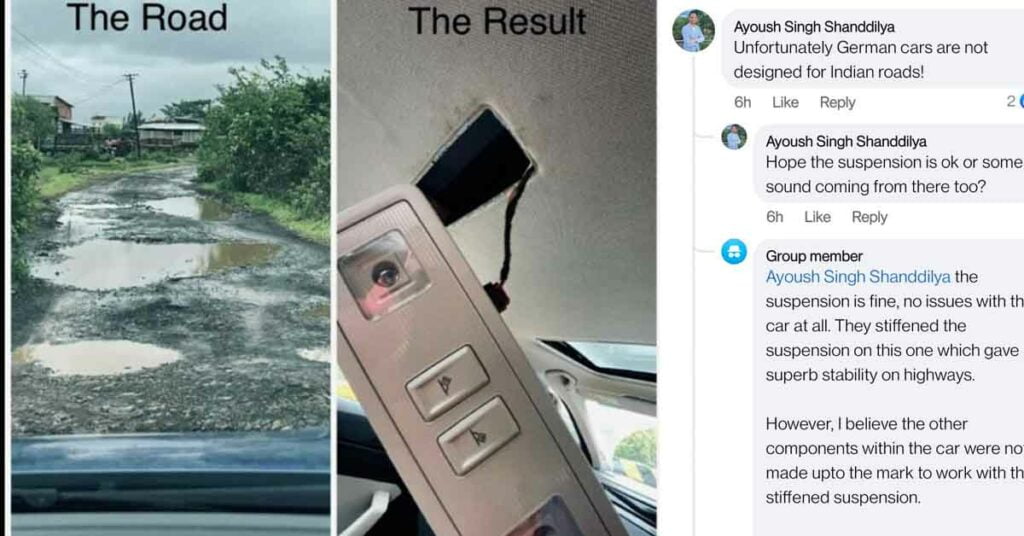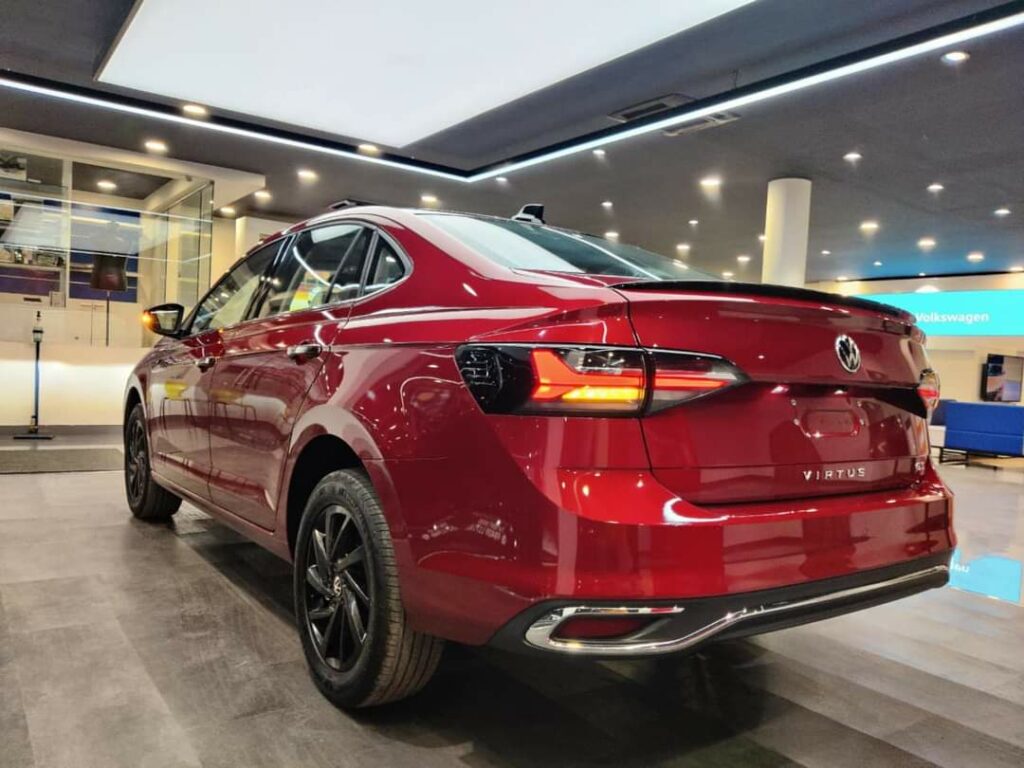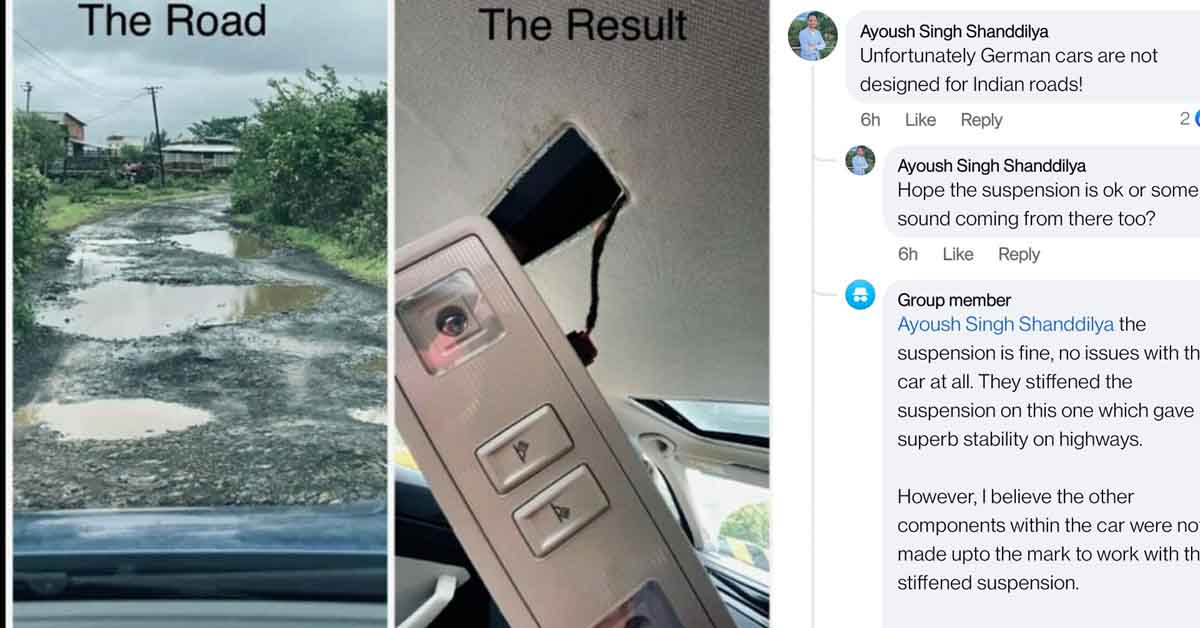The German carmaker is known for making strong and tough vehicles but the localization might have affected that this time around.
This incident shows the rather flimsy build quality of the VW Virtus by the owner. Virtus is a premium mid-size sedan based on the MQB A0 IN platform that features around 95% localization. VW strategically implemented this in order to bring down costs. However, it may have also resulted in compromised build quality, especially in comparison to the solid, built-like-a-tank models that the carmaker is known for. This post by a Virtus owner on Facebook exposes just that in a real-life incident.
You may also like: Audi Q3 Luxury SUV vs Volkswagen Virtus GT Drag Race

You may also like: VW Virtus vs Skoda Slavia Top Model Comparison
Build Quality of VW Virtus
This information was shared on the VW Virtus Owners’ page on Facebook. The owner mentions that the vehicle had to be driven on a broken patch of road for about 6 km. The average speed during this drive was around 5-7 km/h. There are images of the potholes on the road which seem quite innocuous at first glance. If driven carefully, these shouldn’t cause problems. Surprisingly, however, the owner shares a pic of the cabin light panel hanging out of the roof after the journey. This, as one would imagine, represents quite a flimsy and lax fit and finish which could be a direct result of localization.
You may also like: VW Virtus RS Widebody Concepts Are Just Too Hot To Handle
But the owner applauded that the suspension system of the vehicle is great. There were no issues with the mechanicals of the car. In fact, the stiff suspension lends great handling capabilities to the sedan. The owner did not face any other issues in the car apart from this hanging light panel. He was able to fix it after 5 mins of struggle by himself. We can only hope that the other parts in the vehicle are tougher than this.
You may also like: VW Virtus Base Model Walkaround- Better Than Honda City V?

Specs
The VW Virtus comes powered by a 1.0-litre TSI and a 1.5-litre TSI EVO engine. The smaller engine outputs a maximum power of 115 PS and a peak torque of 175 Nm, while the larger unit offers a maximum power of 150 PS and a peak torque of 250 Nm. The transmission options for the former include a 6-speed manual and a 6-speed torque converter automatic, while the latter comes with a 6-speed manual and a 7-speed DSG. The prices range from Rs 11.22 lakh to Rs 17.92 lakh, ex-showroom.
Disclaimer- The embedded videos/ external content is/are being used as a convenience and for informational purposes only; they do not constitute an endorsement or approval by Car Blog India of any of the products, services, and /or opinions of the corporation or organization or individual. Car Blog India bears no responsibility for the accuracy, legality, and/or content of the external site or for that of subsequent external videos/ external content. Contact the external publisher for answers to questions regarding its content.


